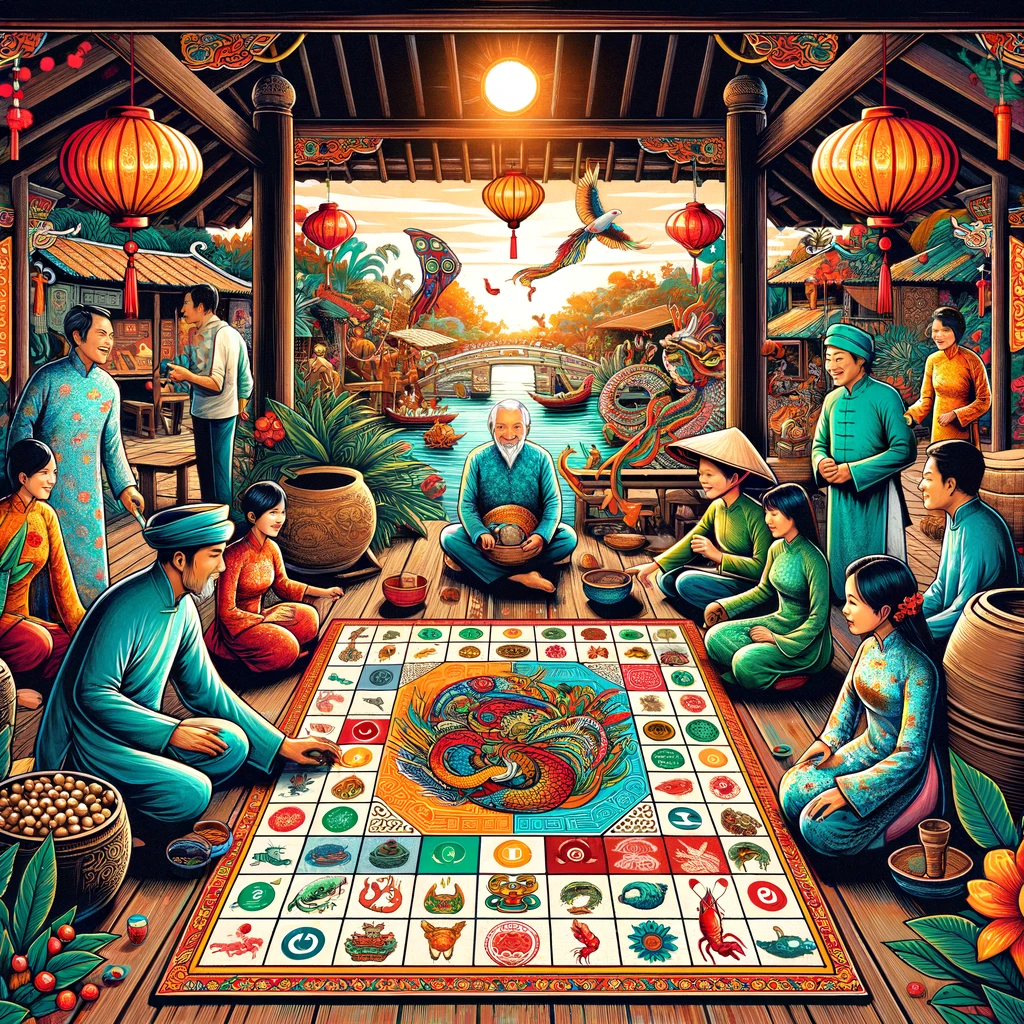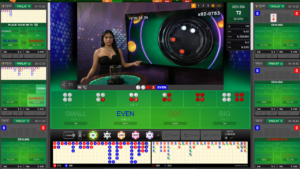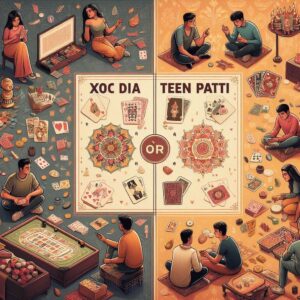Xoc Dia, a traditional Vietnamese game, is as much a part of Vietnam’s cultural tapestry as its cuisine, music, and folklore. Despite its widespread popularity, the origins of Xoc Dia are shrouded in mystery and folklore, making it a fascinating subject for exploration. In this comprehensive blog post, we delve into the history, cultural significance, and evolution of Xoc Dia to understand where did Xoc Dia originate from?

The Historical Roots of Xoc Dia – Where Did Xoc Dia Originate From
Ancient Beginnings
The exact origins of Xoc Dia are difficult to pinpoint, but it’s believed to date back several centuries. It likely emerged during a period when Vietnam was developing its distinct cultural and social identity.
Cultural and Social Context
In its early days, Xoc Dia was more than just a game; it was a social activity that brought communities together. It was often played during festivals and gatherings, symbolizing luck and fortune, integral elements in Vietnamese culture.
Xoc Dia Through the Ages
The Game in Rural Vietnam
In rural areas, Xoc Dia was a symbol of camaraderie and village unity. It was common to see people of all ages participating, highlighting the game’s accessibility and appeal across generations.
Evolution in Urban Settings
As Vietnam’s urban areas developed, Xoc Dia adapted to these changes. The game’s simplicity made it popular in busy city settings, offering a quick escape from the hustle and bustle of urban life.
Understanding Xoc Dia
The game is played with a set of six dice, each marked with symbols – gourd, crab, fish, prawn, rooster, and calabash. The dice are placed in a bowl or plate covered with a lid. Players bet on the outcome of the dice roll.
Symbolism in Xoc Dia
Each symbol in Xoc Dia holds cultural significance. For instance, the fish symbolizes abundance, and the rooster represents strength and resilience, reflecting core values in Vietnamese culture.
Xoc Dia in Vietnamese Festivals and Celebrations
Xoc Dia is a staple in many Vietnamese festivals, embodying the spirit of celebration and community. It is particularly popular during the Lunar New Year (Tet) celebrations, where it’s played as a means of welcoming good luck for the coming year.
The Transformation of Xoc Dia in Modern Times
From Physical to Digital
With the advent of the internet and online gaming, Xoc Dia has found a new platform. This digital transition has helped preserve the game’s traditional essence while making it accessible to a broader audience.
The Global Reach of Xoc Dia
Today, Xoc Dia is not just confined to Vietnam. The game has transcended borders and is enjoyed by people of various nationalities, showcasing the universal appeal of this simple yet engaging game.
The Socio-Economic Impact of Xoc Dia
Xoc Dia and Tourism
Xoc Dia plays a role in Vietnam’s tourism industry. Tourists often participate in Xoc Dia games to immerse themselves in Vietnamese culture, making it a unique cultural export.
Economic Aspects
In some regions, Xoc Dia has evolved into a form of gambling, contributing to the local economy. However, it’s crucial to approach this aspect with caution and responsibility.
Preserving the Heritage of Xoc Dia
Cultural Preservation Efforts
Efforts are being made to preserve Xoc Dia as an integral part of Vietnam’s cultural heritage. This includes educational programs and inclusion in cultural festivals.
The Role of Xoc Dia in Contemporary Vietnamese Society
Xoc Dia continues to be a mirror reflecting Vietnam’s cultural and social changes.
It serves as a link between the past and the present, reminding the Vietnamese of their rich heritage while adapting to contemporary societal dynamics.
The Role of Xoc Dia in Family and Community Bonds
Strengthening Family Ties
In Vietnamese families, Xoc Dia is often more than a game; it’s a bonding activity. It brings together family members of all ages, fostering connections and creating cherished memories.
Community Engagement
Xoc Dia also plays a significant role in community engagement. It’s common for neighbors and friends to gather for a game, strengthening community ties and encouraging social interaction.
The Influence of Xoc Dia on Vietnamese Art and Literature
Artistic Representations
Xoc Dia has inspired various forms of art, including paintings, music, and literature, reflecting its deep-rooted presence in Vietnamese culture.
Literary References
The game is often mentioned in Vietnamese literature, symbolizing themes of fate, luck, and the simplicity of rural life.
Challenges and Controversies Surrounding Xoc Dia
Legal and Ethical Concerns
With its transition into a gambling activity in some circles, Xoc Dia faces legal and ethical challenges. Balancing its cultural significance with responsible gaming is a topic of ongoing debate.
The Future of Xoc Dia
Addressing these challenges is crucial for preserving the cultural integrity of Xoc Dia while adapting to modern ethical standards.
Conclusion
The origins of Xoc Dia are as complex and nuanced as the Vietnamese culture itself. From its humble beginnings in rural Vietnam to its current status as a beloved national pastime and a game with international appeal, Xoc Dia is a testament to the enduring nature of traditional games. As it continues to evolve, Xoc Dia remains a cherished part of Vietnam’s cultural heritage, offering a window into the country’s rich history, values, and social dynamics.
In exploring the roots of Xoc Dia, we gain not only an understanding of the game itself but also of the Vietnamese spirit – resilient, adaptive, and ever-welcoming. Whether played in the quiet of a rural village or the bustling streets of Hanoi, Xoc Dia is a symbol of Vietnam’s enduring cultural legacy and its ongoing journey through the tides of time.






